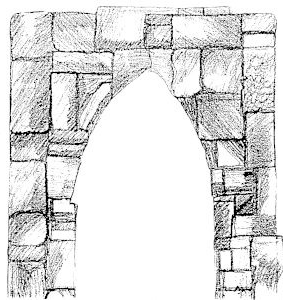Mathematics
Intent
Our vision for mathematics at Priory is that all children will become mathematicians. We endeavour for children to be confident in maths and enjoy their learning to apply their understanding to the world around them.
We aim for all children to become fluent in the fundamentals of mathematics and the ability to recall and apply knowledge rapidly as well as solving problems by applying their understanding confidently.
Through a focus on teaching for mastery, all children can succeed in maths and can learn the necessary skills. Mastering maths means pupils of all ages acquiring a deep, long-term, secure and adaptable understanding of the subject. This is achieved using a range of pedagogical strategies, most notably small steps of learning and careful variation and adaptation of representations and questions. A key element of this is through developing a shared language in maths. Teachers use correct mathematical vocabulary and encourage children to do the same.
Children of all ages are expected to reason mathematically and explain their methods and answers, recording in various ways. This accelerates their language skills, as well as, deepening their understanding of the mathematical concept.
Teachers also plan and provide challenge activities for children to demonstrate their deeper understanding of the learning within different contexts. At Priory, children learn how to reason mathematically, and, from the beginning of their maths journey, they use mathematical language within their learning. Pupils at Priory solve problems by applying their mathematics to a variety of problems with increasing sophistication, linking problems to everyday life.
Implementation
At Priory, our curriculum broadly follows the White Rose Maths scheme of work, but staff supplement this with high-quality additional materials such as NRich (University of Cambridge Scheme) and NCETM (National Centre for Excellence in the Teaching of Mathematics). This approach aims to challenge and support children to achieve maximum progress. Units of learning are broken down into a series of small, connected steps, each building on the children’s prior learning. Each lesson focuses on one small step or a series of small steps.
Click here to read more about White Rose Maths.
Learning throughout the school is introduced using a concrete, pictorial and abstract approach so that pupils develop a conceptual understanding of mathematics through a variety of manipulatives and representations. Teachers plan and deliver lessons to address the needs of all pupils with the use of scaffolding, skilful questioning, rapid intervention and carefully designed enriching activities.
We use NfER assessment tools to track the progress of the children and to identify gaps in learning. Teachers aim to rapidly address gaps in children’s understanding within the lesson and through targeted intervention.
At Priory, we know the importance of basic maths recall, such as times tables and arithmetic skills. As a result, we teach dedicated arithmetic sessions each day which enable children to become more fluent with key arithmetic skills. Alongside this, we also have daily times table practise, where children have the opportunity to access Times Table Rock Stars, that encourage fluent recall of all times tables.
In EYFS and KS1 at Priory, NCETM Mastering Number is taught in order to develop children’s number sense and to enable children to confidently answer addition and subtraction facts automatically as well as explore and discuss varied representations of numbers to 20.
“Developing a strong grounding in number is essential so that all children develop the necessary building blocks to excel mathematically.”
In EYFS, continuous provision includes opportunities for children to demonstrate and apply their learning in Number Sense and in other aspects of mathematics. The children apply their learning in real-life situations and in their play. Adults work with children on focussed tasks, and in the provision, developing children’s accurate use of language and vocabulary to describe their mathematics.
Impact
The impact of our curriculum on pupils’ development of mathematical knowledge and skills is measured formatively and summatively. Regular and ongoing assessment by teachers and the use of assessments informs teaching, as well as intervention, to support and enable the success of each child. In-school moderation of teachers’ assessments are moderated regularly by the mathematics leader and senior leaders.
The mathematics leader rigorously monitors teaching and learning to ensure that pupils make good progress across the school. Upon completion of Year 6, our curriculum enables pupils to be fully prepared and equipped to successfully continue their mathematical learning journey at secondary school and in their later lives.
